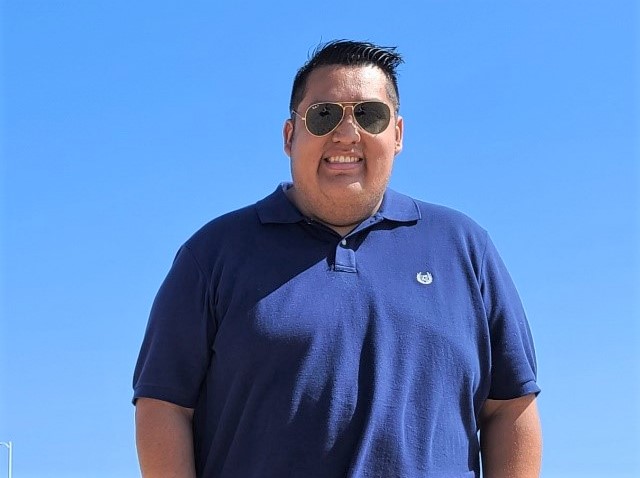Oscar Gonzales reflects on reentry and pursuing his passion
In a word, Oscar Gonzales is tenacious. His experiences at the Chino, Norwalk, and N.A. Chaderjian facilities have helped him become a full-time manager at an Indiana-based company. The recent Honorable Discharge recipient is also an aspiring civil engineer and plans to attend a university.
Although he left the Division of Juvenile Justice (DJJ) seven years ago, Gonzales recently found out about Honorable Discharge. He said he’s “very happy” to have earned the designation.
What is Honorable Discharge?
Honorable Discharge is used in court as proof of rehabilitation, and can open opportunities to housing and careers, and increases the likelihood of expunging a criminal record.
Former DJJ youth can apply for an Honorable Discharge if at least 18 months have passed since they were discharged, their probation/parole term is complete, they have shown an ability to desist from criminal behavior, and they have started a successful transition to adulthood.
After sending an application and personal statement to the Board of Juvenile Hearings, they often speak in front of the Board about their growth after DJJ.
Path of re-entry
Gonzales’ choices post-DJJ demonstrate hard work, resiliency, and ambition. Immediately after release, he rebuilt carburetors with his father. After a brief stint as a work-place inspector in South Dakota where he discovered a “passion for dealing with electronics,” Gonzales began electrical engineering coursework at East Los Angeles Community College.
He excelled in math and science, discovering a stronger interest outside of his major.
“I ended up changing my major to civil engineering. It had a lot to do with … the cleanliness of the environment,” he said. “I found my passion there.”
He chose to focus on his studies full time while also pushing himself with a new full-time job.
After suffering a medical set-back, doctors ordered him to slow down. He was hospitalized for a month and remained home for an additional two months.
“I had new goals and thought about my future with my fiancé,” he said. “I accepted a job (in Indiana to) make it easier.”
Gonzales is living with his sister while saving money to purchase a home.
He recently applied to a nearby university to continue his studies.
Rehabilitation through DJJ
“A lot of my friends were graduating and making their lives, and I just wanted to be a part of that,” he said.
Gonzales attributes much of his success to skills he acquired at DJJ.
“They basically build a foundation about what type of person you should be around (others) and how your lifestyle affects them,” he said.
After release, he was faced with new challenges such as learning to drive and managing his life. Transitioning from DJJ’s structured system to making his own schedule was difficult at first.
“(It) seems out of your comfort zone, like there was no order,” Gonzales said.
Looking back at years of challenges and triumphs leading up to his Honorable Discharge, Gonzales believes he’s made the appropriate choices post-release.
“It’s a transition worth taking the leap for. It’s life changing, and you just gotta look at the bright side,” he said.
By Jenean Docter, 2019-20 Executive Fellow
Division of Juvenile Justice
Follow CDCR on YouTube, Facebook, X (formerly Twitter). Listen to the CDCR Unlocked podcast.
